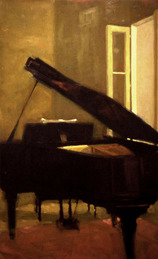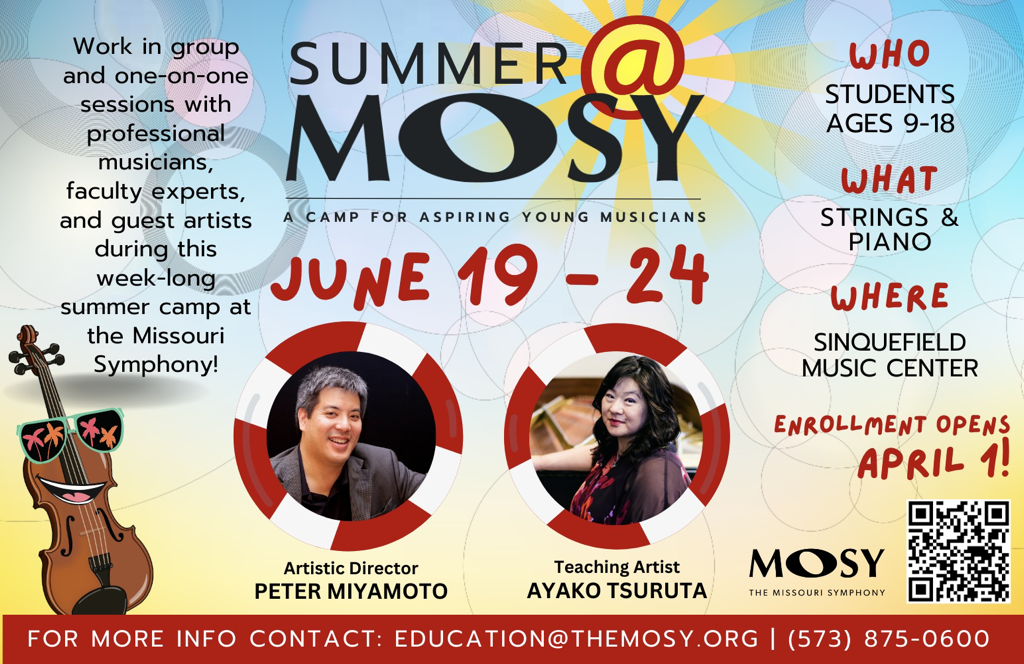NYSMF Piano Technique Class (2005-2014)

This page was dedicated to NYSMF students who were interested in anything and everything about piano playing, from beginners to advanced repertoire.
I taught piano technique classes for 10 summers at NYSMF, and received numerous requests to outline different exercises according to its difficulty. As I promised the class of summer 2011, I attempted to list exercises we can and/or will study pending the class dynamics and levels of the session.
Please note this page will be work in progress for quite sometime - and the list will be revised perpetually, but it will give you an idea of what you will be committing to - not just over the summer, but also for the entire duration of your studies.
Thank you for your interest, and happy practicing!
Ayako
I taught piano technique classes for 10 summers at NYSMF, and received numerous requests to outline different exercises according to its difficulty. As I promised the class of summer 2011, I attempted to list exercises we can and/or will study pending the class dynamics and levels of the session.
Please note this page will be work in progress for quite sometime - and the list will be revised perpetually, but it will give you an idea of what you will be committing to - not just over the summer, but also for the entire duration of your studies.
Thank you for your interest, and happy practicing!
Ayako
Please read this before you read the list...
It is VERY important that everyone - students and teachers alike - understand that Piano Technique is not a formula, but an experience gained through years of practicing and performing. I have had the pleasure of studying with some of the greatest, world-class teachers, but I often find myself in a position where I still learn from their instructions, and from my own students too, with their often original and uncanny ideas.
Personally, I think well-rounded Piano Technique is based on a smart, strategic repertoire choice, AND constant & consistent exercise of how well you are able to find a solution to a problem ( = creative thinking). This approach is important, because as you age - life happens - some challenges they pose on you will inevitably vary, and you will need to be creative in finding the answers that are effective to solving your problems.
Each session (2 weeks) that I teach this class, I try to introduce the students what I know, that includes a list of exercise repertoire, what I recommend and why, as well as encouraging them to study a section of an etude and sharing ideas in the class. My goal is not to polish an etude in 2 weeks (unless, of course, that IS your goal), but to plant a seed and help it grow a little, so that you have something to bring back home, enjoy what you have learned over the summer, and hopefully that knowledge will encourage you to practice a little more and effectively.
...Did I just mention "Practice?" YES. Piano Technique does not grow on its own. Thinking about Piano Technique is important, but in the end, you must remember piano playing is very physical. Hence, performance is 50% Art and 50% Sport. You must learn to properly apply your knowledge, be fearless, and dedicate yourself to practicing if you want to improve your piano playing!
So please feel free to read my 'list,' if it will give you an idea (or even an inspiration) of what we will be covering for discussions and demonstrations. Your comments, suggestions, etc. are welcome!
Ayako Tsuruta
Sample List in 3 Groups
|
Group 1
|
Group 2
|
Group 3
|
Other (what I think is pretty important &) Good Stuff:
Fun things to do, in my opinion:
Recommended Reading
Discussion Topic (not in any specific order)
- Read (Play) through J. S. Bach's 48 Preludes and Fugues
- Read through Chopin Etudes and ANY Mozart, but especially Theme & Variations and his Concertos (with Cadenzas please)
- Just READ any music, at your own pace... (My personal favorite is chamber music)
- IMAGINE the sound you want to create before you try, and keep listening with open mind.
- Go to Concerts and Performances, LOTS and ANY of them, piano, chamber music, orchestral, and other instruments/vocal and genre (classical, jazz and pop) - because one of the most important things you will learn as a pianist once you reach the point of polished performance at any level, is how to make piano sound like ANOTHER voice and/or instrument. More interesting and inspirational the better, but you cannot hope to experience these feelings unless you GET OUT. The earlier (as in your age) you can go to these concerts the better; it's exactly like learning another language. I recommend at least once a week. It doesn't have to be expensive concerts; it can be master classes, visiting your instrumental friend's lessons - Train yourself to listen with open mind. You will be very surprised just how much of what we discuss as pianists (even technique!) are similar to other instruments.
Recommended Reading
- Introduction and Index to ALL etude books
- Theodor Leschetizky: Fundamental Principles of Piano Technique (Dover Books on Music)
- Heinrich Neuhaus: The Art of Piano Playing
- Jean-Jacques Eigeldinger: Chopin: Pianist and Teacher: As Seen by his Pupils
Discussion Topic (not in any specific order)
- How to warm up before playing - Proper position (height of seat, hand position, etc.), Scales and How
- How to memorize
- How not to get nervous (!)
- How much is enough practice?
- How do you know?
- Technique of different 'schools' - Perspective
- How to practice scales
- How to practice Hanon's The Sixty Exercises
- Division of the hand
- Those &^%^$_* thumbs...
- How to pedal
- How to LISTEN
- Pulse, Speed, and Tempo
- Is sight-reading considered part of piano technique, and is it important? (The answer is YES and YES)
- Brief history of piano exercises, pianos and pianists
- What do you do in a situation... (Fill in the blank)
- Treating the instrument with respect (...like another human being)
- Attitude.
- Understanding each composer's intent and how to read his/her work
- Perfect vs. Relative pitch
The 9 Keys to Becoming the Best That You Can Be:
(from http://www.bulletproofmusician.com/what-every-musician-ought-to-know-about-stage-fright/)
(from http://www.bulletproofmusician.com/what-every-musician-ought-to-know-about-stage-fright/)
- Preparation: Learn how to practice the right way
- Manage energy: Learn how to control your body’s response to adrenaline
- Confidence: Learn how to build confidence
- Courage: Learn how to play courageously (vs. playing tentatively and worrying about mistakes)
- Concentration: Learn how to slow down and regain control of your mind – even under pressure
- Focus: Learn how to quiet the mind, focus past distractions, and stay in the moment
- Resilience: Learn how to recover quickly from mistakes (so you don’t make even more mistakes)
- Determination: Learn how to keep yourself motivated and relentlessly pursue your goals
- X-Factor: Learn to unlock that something special, that je ne sais quois that makes all the difference in the world
